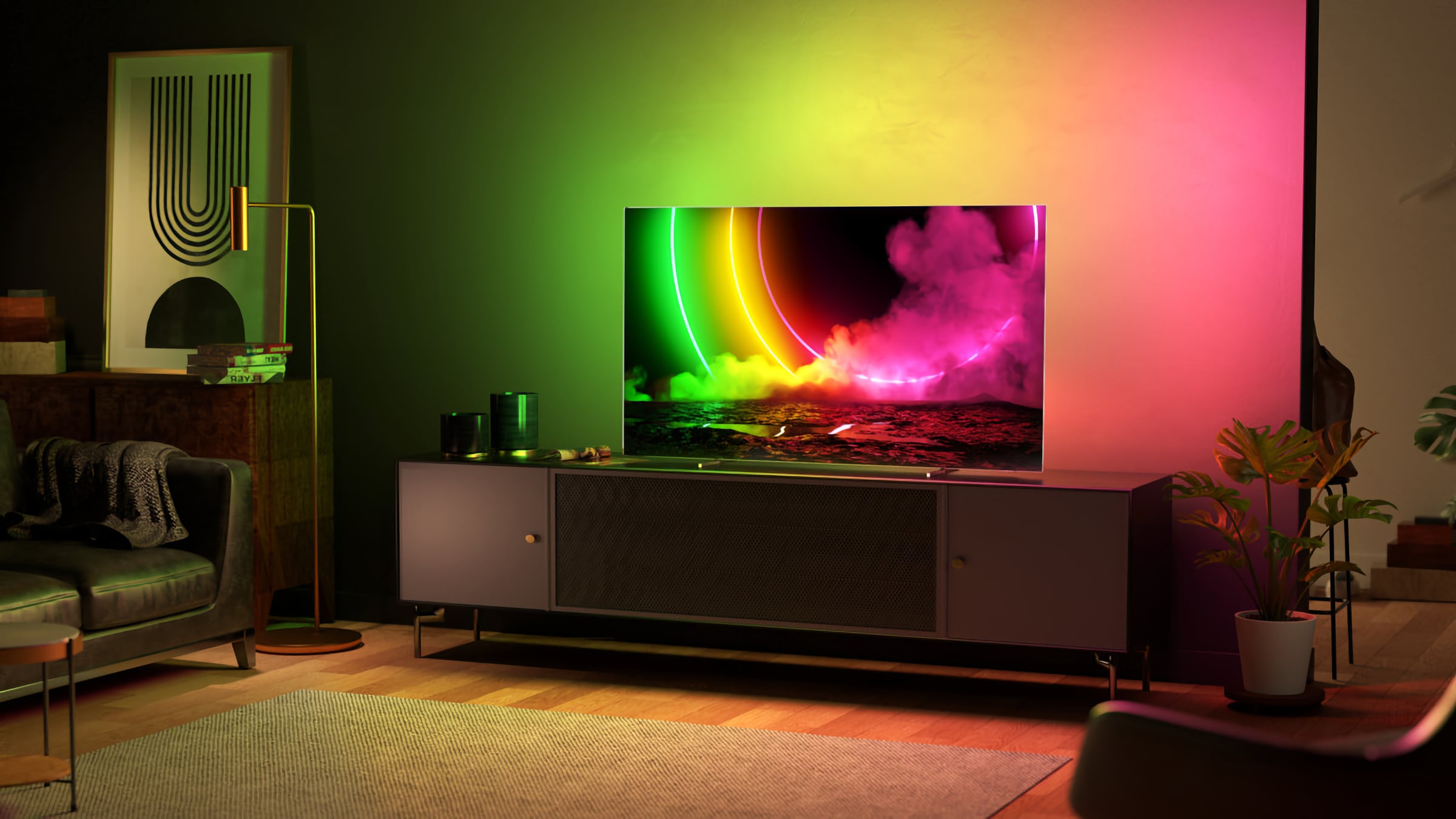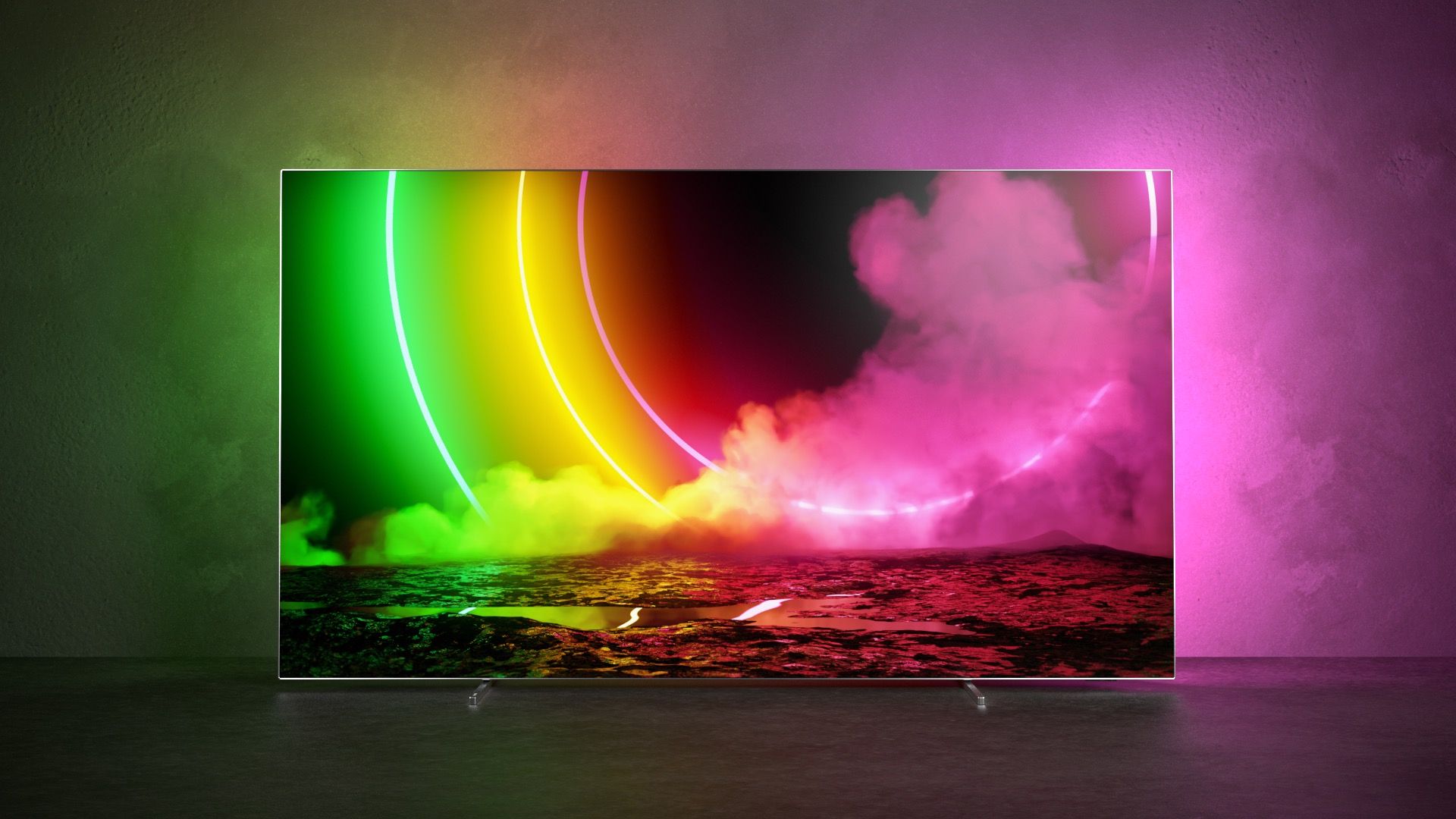This Philips OLED TV is your best bet for a reasonably priced home cinema screen
Philips' Ambilight-sporting OLED TV could be a smart choice

The new Philips OLED 806 is on its way, and those after a capable OLED TV with unique smart lighting features need look no further.
Philips has great form when it comes to OLED TVs, utilizing the excellent OLED panels manufactured by LG Display and combining them with its P5 processor, now in its fifth generation.
But Philips also does things differently from a lot of other OLED TV makers, ensuring capable built-in audio through its collaborations with sound specialist Bowers & Wilkins. Not to mention its proprietary Ambilight technology, which projects a light show behind the television itself to provide more ambience for films and games alike – and can even connect up to Philips Hue bulbs across your home.
We know that there'll be a few Philips OLED TVs coming this year, then, including new iterations on the OLED 805 and OLED 855 models we saw last year. There's no word on a successor to the OLED+935 flagship as of yet, but you can expect to see something at the high end appear in the near future.
For now, though, it's worth paying attention to the OLED 806, which packages everything that's so tempting about Philips' OLED TV range at a price point that's hard to argue with – including potential for a great picture, capable audio specification, the latest gaming features, and unique projection system for a truly all-in-one home cinema screen that won't cost you the earth.
Philips OLED 806 price, release date, and sizes
Philips' 2021 OLED TVs are expected to come on sale in the first half of 2021, meaning that a release date is likely just around the corner.
There's no pricing for the OLED 806 model as such, but last year's model gives us a good indication of what to expect. The 55-inch and 65-inch sizes for the 805 retailed at £1,499 and £2,199 respectively, and you can now find the smaller version for just £1,199.
Get daily insight, inspiration and deals in your inbox
Sign up for breaking news, reviews, opinion, top tech deals, and more.
That's competitive pricing compared to either the LG C1 OLED or Sony A8, comfortable undercutting both by a couple of hundred pounds at a 55-inch size.
However, the Philips OLED 806 will also introduce a number of new sizes compared to the 805 model, with a 48-inch OLED option as well as a larger 77-inch iteration. Previously, only the flagship OLED+935 had got that smallest size, but we're thankfully seeing it come further down the range – though the step-up OLED 856 model will stick to 55-inch and 65-inch sizing only.

Philips OLED 806 design and specs
So, what do we know about the set itself? It will feature a "razor thin, zero bezel" design, keeping things sleek and focused on the picture itself. Unlike the OLED 856, which comes with a "wedge mount metal dark chrome T bar stand", the OLED 806 will feature a rather ordinary pair of feet to balance it on a counter.
Rather than the standard 10W found on cheaper TVs, or even the 30-40W found on competing Panasonic and LG TVs at this price, the 806 packs in a 50W 2.1 channel sound system, meaning you're getting some notable heft out of its built-in drivers.
You're not getting a built-in Bowers & Wilkins soundbar, but you shouldn't be disappointed either: in our 805 review, we wrote that "Audio playback – which includes built-in decoding of Dolby Atmos – is detailed, dynamic and clean, and breaks free of the physical confines of the TV without starting to sound brittle or incoherent."
One big improvement over the 2020 model, though, is the inclusion of HDMI 2.1 (the 805 had four HDMI 2.0 ports), meaning the 806 should do you fine for top-range gaming performance on a PS5 or Xbox Series X console, supporting 4K/120fps gameplay.
As an OLED TV, you can expect incredible black levels, vivid colors, and that famous 'infinite contrast ratio' between dark and light sections of the screen. The new fifth-generation P5 picture processor has also added "anti-burn-in" technology for its OLED sets, which helps to detect logos or static content and reduce the intensity of light in those areas, "without compromising the output of other parts of the screen".
A new "Film detection" category also helps calibrate picture settings to the genre of content being watched, and support for the light-sensitive HDR10+ Adaptive mode unveiled by Samsung last year.
- What is OLED? The TV panel technology explained
Like Panasonic, Philips is agnostic towards HDR formats, and makes sure to support both the dynamic Dolby Vision and HDR10+ standards (unlike Samsung, which sticks only with the latter). You’ll also get the HLG (hybrid log gamma) broadcasting format, though these formats drop off when you get down to more affordable mid- or low-end sets.
Philips uses the Android smart TV platform across its TV range, with 2021 models getting the latest Android 10 iteration. It’s the most common TV platform and the most unremarkable – though Android’s stability issues have generally improved over the past couple of years, thanks to updates from Google.
The much-touted Ambilight is back in earnest for 2021 too, though all OLED and Mini LED TVs Philips is launching this year will come with four-sided Ambilight (top, base, and sides) for an multi-directional light show. Last year's 805 only came with three-sided Ambilight, so it's great to see even mid-range OLEDs get more extensive coverage.
Philips 2021 OLEDs aren't yet on sale, so check out the best deals on last year's models below:
- What are the best OLED TVs?
Henry is a freelance technology journalist, and former News & Features Editor for TechRadar, where he specialized in home entertainment gadgets such as TVs, projectors, soundbars, and smart speakers. Other bylines include Edge, T3, iMore, GamesRadar, NBC News, Healthline, and The Times.
